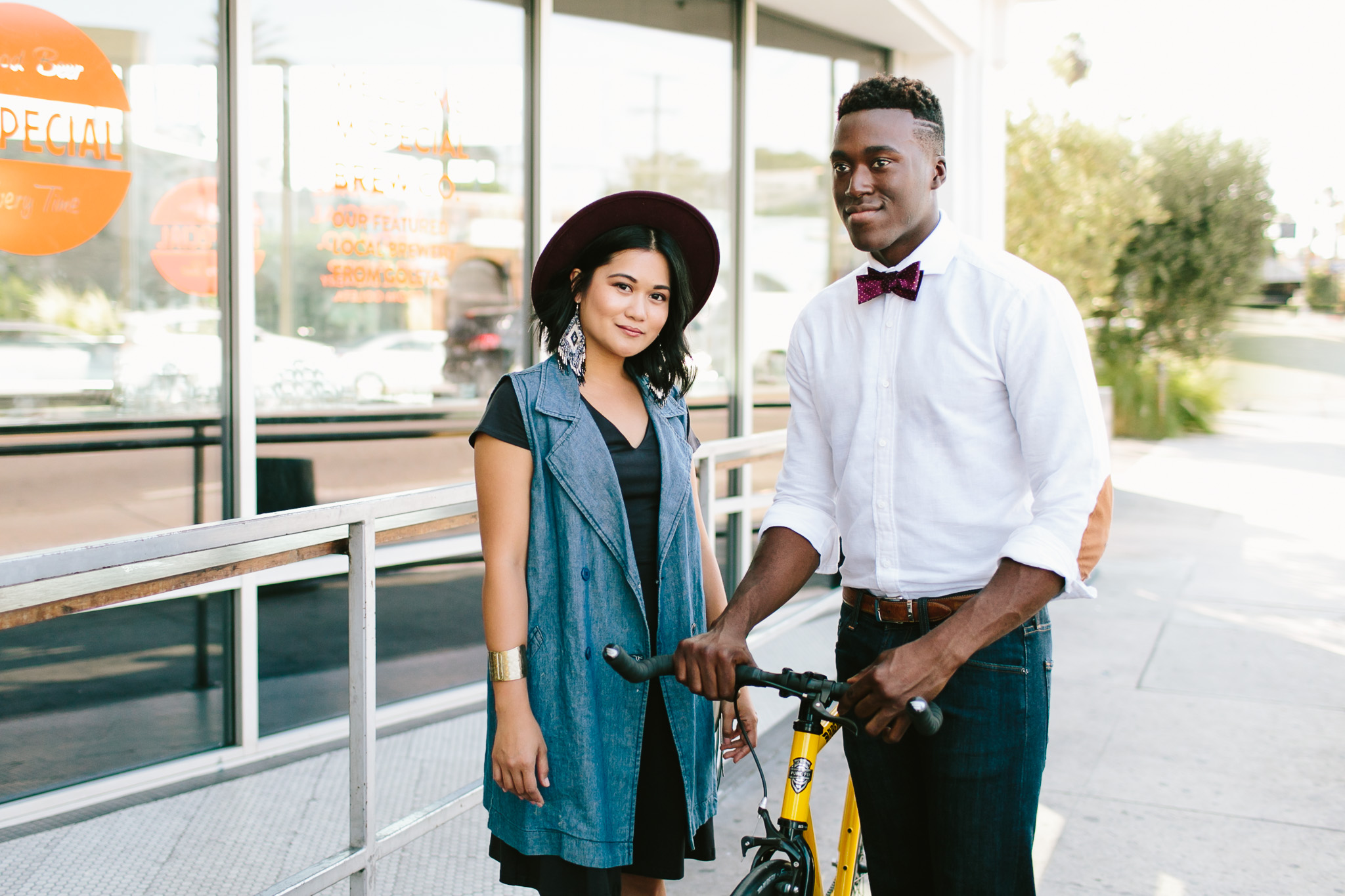College Students: How Human Trafficking Can Affect You
Human trafficking is known as an industry that afflicts the most destitute, underdeveloped areas of the world. Movies like the Taken series perpetrate the dangerous stereotype that human trafficking only affects individuals where governments are weak and law enforcement is lackluster. However, human trafficking in America is not limited to run-down brothels or fueled by creepy, middle-aged men as depicted by Hollywood. Human trafficking is proliferated at the music festivals we readily attend and is disguised behind the facade of tinder dating profiles we eagerly swipe past. Traffickers can literally be anyone--and our indifference towards recognizing their presence in our society allows them to continually deceive us.
As a college student, how can I be impacted by this seemingly invisible yet widely trivialized industry? How can I avoid being a part of the 40% of human trafficking victims in America who are indeed U.S. citizens? The first step in avoiding this trend is understanding what human trafficking on college campuses looks like. This starts by recognizing who makes up the greatest at-risk populations for trafficking. Trends show us that that the economically disadvantaged, the mentally ill, the emotionally distressed, and substance abusers are the most vulnerable populations. These specific demographics are susceptible to falling prey to an industry that manipulates the insecurities of their victims.
Traffickers prey on human weakness; they come into people's lives at a time when they are feeling inadequate and vulnerable. Traffickers attempt to fulfill a missing need that is lacking in their victims’ lives, and in doing so, they are capitalizing on the strife experienced by most college students -- a thinning wallet, an increase in stress and sleep deprivation, and a newfound exposure to drugs and alcohol. Consequently, college students can easily exhibit the qualities found in the at-risk categories mentioned.
Traffickers attempt to fulfill a missing need that is lacking in their victims’ lives, and in doing so, they are capitalizing on the strife experienced by most college students -- a thinning wallet, an increase in stress and sleep deprivation, and a newfound exposure to drugs and alcohol.
It is unfortunate that the common experiences which shape our college experience make us more susceptible to this horrifying industry. Human traffickers rely on crowded concert venues, music festivals, and sporting events to supply the demand for commercial sex. The influx of tourists, potential “Johns,” and vulnerable college students who attend these events provide traffickers with plentiful leverage to expand the industry and increase their profit margins.
As a student attending the University of Texas at Austin, I have to be cautious when I go to late-night, crowded venues which make it all to easy for traffickers to both sell, coerce, and exploit women. Formula One and South by Southwest are widely cherished events in Austin that most UT students attend at some point in their college experience. It is unfortunate, however, that traffickers use these events as a human trafficking hub, or recruiting grounds, to both search for new victims and find buyers of sex.
If your college campus has arenas or spaces in which large events are held, where people travel in and out of the city (aka every home football game), or even a prominent bar scene where strip clubs and brothels are more likely to pop up, then you are living in an area that is perfectly suitable for the industry of human trafficking.
As a college student, it is important to guard yourself against such dangers by being aware of them. You should be especially aware when you are on dating apps like Tinder and Bumble. While these apps can be seemingly innocent, they enable human traffickers to disguise themselves as charming, young men who are in reality grooming young people for a life in the sex industry.
Take the story of Jane; a girl whose tinder romance led to her enslavement. Jane met her boyfriend on Tinder. Her relationship, although normal at first, began to evolve. After spoiling her for some time, her boyfriend began to request that she “escort” his friends for a small sum of money. This led to his eventual request for her to start sleeping with the men. Her trafficker was using a process of grooming, which involves the gradual expansion of his victim’s boundaries after he gained her trust.
Sarah Krebs, Sergeant with Michigan State Police, looks at Jane’s case with remorse. She states, "Unfortunately, most of the trends that we're seeing, especially in the sex trafficking side of it, is that the victims [who] get involved are voluntary at first.” They are then “boyfriended” into it. She explains that, “there comes to be expectations with [this] relationship and they get involved into a sex-trafficking situation." Thus, what results in human trafficking very well starts from innocent Tinder exchanges and Instagram DMs; we must be cognizant of this reality if we are to avoid it.
"Unfortunately, most of the trends that we're seeing, especially in the sex trafficking side of it, is that the victims [who] get involved are voluntary at first,” says Sarah Krebs, Sergeant with Michigan State Police.
As college students, we need to be aware of the environment we reside in and how it can make us more vulnerable to human trafficking. The environmental changes we experience as well as the slew of opportunities presented to us signify dangerous threats that are often invisible to the public eye. From the swipe-right craze of Tinder to the crowded sporting events that typify a student’s experience, college presents a world of opportunities that can easily be manipulated by traffickers.
It is what we do with these opportunities presented to us that matter. We must have the courage to speak out against issues like human trafficking that threaten the livelihood of our peers and loved ones. There are many student-led initiatives that fight against sexual assault such as Not on My Campus which you can take part in. Awareness is powerful tool-- but only when it is diligently and meaningfully used. College students have a lot of influence in the world; it is up to them to use their power for good.
You don't have to wait until December to be a part of the impact. Join the Dressember Collective and become part of a powerful community of advocates and donors furthering the work and impact of the Dressember Foundation through monthly giving.
XO
About the Author
Sarah Beech is a Junior at the University of Texas at Austin who is studying psychology and government. She is most passionate about fighting against the various human rights abuses that occur around us. In her free time, she likes to watch Netflix, hang out with her friends, and try new restaurants. Her favorite quote is, "Never let the fear of striking out keep you from playing the game" (from A Cinderella Story).




